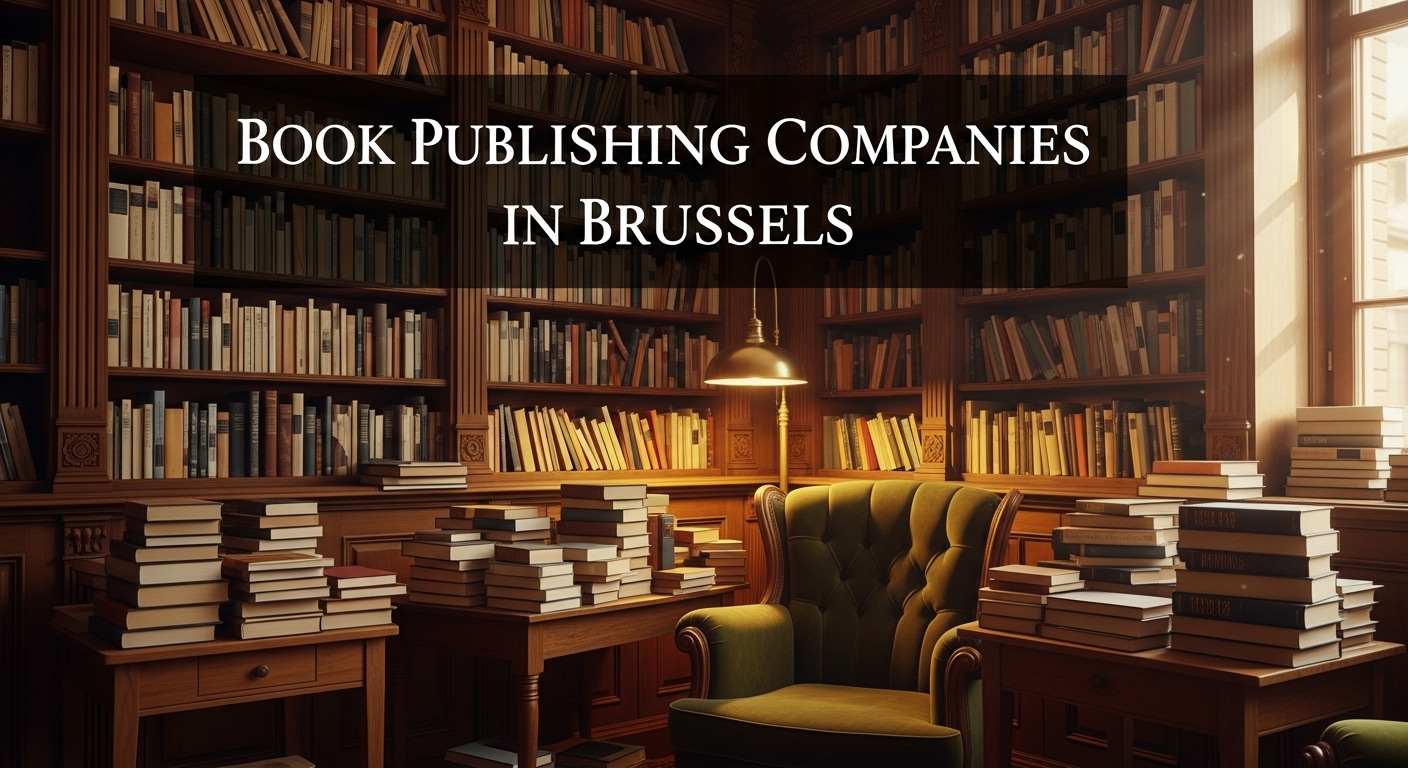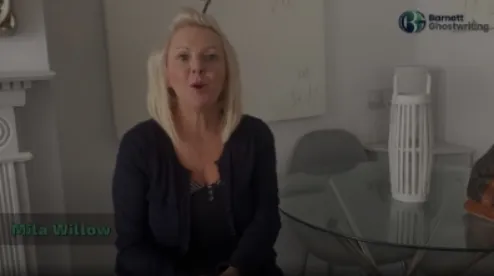
Brussels sits at the cultural crossroads of northern and southern Belgium: a bilingual, international city where francophone, Flemish and English-language publishing intersect with academic, political and illustrated-book markets. For authors seeking to publish in Brussels in 2025, the landscape blends long-established houses with agile independents that specialize in everything from illustrated art books and cultural history to academic works and literary fiction.
1. Barnett Ghostwriting
Barnett Ghostwriting operates as a full-service publishing partner and ghostwriting collective that offers manuscript development, editing, design and hybrid publishing services. In the Brussels context Barnett can act as a commissioning editor for authors who want hands-on support through drafting, revisions and the production pipeline—especially useful for business books, memoirs and commercial non-fiction that require close editorial collaboration. Authors considering Barnett should evaluate whether they want a white-glove, project-managed route (editing, cover and interior design, marketing assistance) versus seeking a traditional publisher that handles advance contracts and rights sales.
2. Lannoo Publishers
Lannoo is one of Belgium’s largest and most visible publishing houses, with a strong reputation for illustrated books, art and cultural titles, travel, children’s books and lifestyle publications. They produce high-production-value books—coffee-table art books, regional history and illustrated guides—and maintain broad distribution across the Benelux region and beyond. Lannoo is a fit for projects that need significant design and production investment, especially visually driven content and titles that aim for retail visibility.
3. Les Impressions Nouvelles
An independent Brussels-based house founded in the 1980s, Les Impressions Nouvelles publishes literary fiction, essays, narrative non-fiction and graphic novels. The imprint is known for editorial curation that favors original voices and intellectually engaged work; it typically issues a modest slate of titles each year and is suited to authors seeking a discerning literary editor rather than mass-market exposure. If your manuscript is conceptually driven, experimental or sits between genres, this is a publisher to research.
4. Éditions Mardaga (Groupe Lemaitre)
Éditions Mardaga is a Brussels-area publisher with a long history in psychology, social sciences, health and professional works. In recent years it has been part of editorial groupings that allow it to publish a relatively high volume of specialized non-fiction titles—handbooks, clinical guides and practitioner texts—that serve academic and professional markets. Mardaga is a natural home for authors with subject-matter expertise (psychologists, social workers, health-care professionals) who want a publisher experienced in scholarly editing and sector distribution.
5. Renaissance du Livre
Renaissance du Livre is an established Belgian house with a history of literary and non-fiction publishing. It appears in many contemporary lists of Belgian publishers and has traditionally published a mix of general trade titles, literary works and regionally relevant non-fiction. Authors seeking a respected mid-size house with experience in the francophone market should consider Renaissance du Livre for projects that balance literary merit with market appeal.
6. Éditions Complexe
Éditions Complexe is recognized for cultural, academic and social-science titles with strong editorial standards. Their catalogue often includes books on political science, sociology and history—subjects that resonate with Brussels’ institutional and academic readership. Complexe is suitable for scholarly authors and public-intellectual works that require careful peer review and a targeted institutional distribution network.
7. Éditions CFC
Several smaller Brussels-based imprints and specialty houses focus on richly illustrated art books, local heritage and architecture; Éditions CFC is one of the names that appears in regional catalogues for such projects. These presses are ideal for photographers, art historians and authors of visually led monographs who need publisher experience in image-heavy production, photo rights and museum/ gallery distribution channels. Consider them when your project requires premium paper stocks and careful image preparation.
8. Casterman
Although historically associated with broader Belgian publishing and famous for illustrated works and comics, Casterman is often listed in directories of Brussels publishers (and maintains a significant presence in the francophone publishing ecosystem). Casterman’s historic strengths are in illustrated youth literature, graphic novels and comics—important categories in Belgium’s publishing heritage. If you write for younger readers or produce graphic narratives, Casterman’s editorial experience in that field makes them a logical candidate for submission or rights discussions.
9. Hannibal / Specialized music & cultural publishers
Brussels is home to several niche houses that target specialist markets—music, performance, local culture and sectoral reference works. Hannibal (and similar smaller imprints) publishes music titles and culturally focused books that intersect with Belgium’s vibrant arts scenes. If your manuscript ties into musicology, performance history or local cultural criticism, these houses offer the domain expertise and targeted distribution needed to reach practitioners, scholars and fans.
10. Europa Publishers Belgium
Given Brussels’ role as the European capital, a number of publishers specialize in EU policy, diplomacy and international affairs; Europa Publishers (and similar policy-oriented houses operating from Brussels) focus on titles aimed at policy wonks, think tanks and international relations audiences. These houses are appropriate for authors writing rigorous, research-based books on European politics, governance or comparative policy. Such publishers typically prioritize authoritative content, clear referencing and channels into academic and institutional buyers.
Practical tips for Brussels authors
- Language first: Decide whether your primary audience is francophone, Flemish or international/English. Many Brussels publishers are francophone and will expect submissions in French; others publish in Dutch or English.
- Match the project: Illustrated, high-production books (art, design, photography) need publishers with proven production budgets; academic and professional books require publishers with peer-review and institutional sales experience.
- Rights & translations: Brussels publishers often have solid regional rights networks but limited global reach—if you want foreign-language distribution, discuss translation and rights strategies early.
- Submit professionally: Provide a one-page synopsis, target audience, comps (comparable books), and a short author bio. For image-heavy projects, include a sample layout and image resolution notes.
- Consider hybrid options: If you want control and professional support, hybrid or partnership publishers (or services like Barnett’s project-management model) can offer editing, design and distribution without a traditional advance—but evaluate contract terms carefully.
Typical cost & timeline expectations
- Traditional publishing: No upfront cost to the author; timeline from acceptance to publication typically 12–24 months (editorial calendar permitting).
- Hybrid/publisher-assisted models: Author contribution often ranges from $1,500 to $15,000+ depending on editing, design, print runs and marketing. These models speed production but involve author investment.
- Self-publishing: From $500 to $8,000+ depending on professional fees (editing, cover, interior design, ISBN, distribution). Timelines are flexible—often 3–6 months with a coordinated team.
Conclusion
Brussels remains a lively, diverse publishing hub in 2025. Whether your project is a richly illustrated cultural monograph, a rigorously researched policy book, a practical professional guide, or literary fiction, there are Brussels-area houses with the editorial and production experience to match your needs. Start by identifying the publishers whose recent catalogues mirror your book’s genre and production values, prepare a professional submission package, and—if you prefer a managed, author-centric route—compare hybrid or full-service partners that can shepherd your project from manuscript to market. The publishers listed here represent a cross-section of what Brussels offers: strong design traditions, academic rigor and a warmly curated literary scene.
FAQs
Q: How can I become a New York Times bestselling author?
By combining a compelling book with strategic marketing, wide distribution, and strong early sales momentum.
Q: What is the best way to get my book published in Brussels?
Research publishers aligned with your genre and follow their submission guidelines carefully.
Q: Do I need a literary agent to approach Brussels publishers?
Not always, but an agent can help with contract negotiations and foreign rights.
Q: How long does it usually take to publish a book?
Traditional publishing often takes 12–24 months, while hybrid or assisted models can be faster.
Q: What makes a book stand out to publishers?
A unique concept, polished writing, clear audience targeting, and a professional submission package.





